.webp)
For decades, the allure of the Arabian Gulf for many travelers, both international and regional, was synonymous with luxurious shopping malls, world-class brands, and an unparalleled retail experience. These glittering cathedrals of commerce became destinations in themselves, offering everything from high fashion to exotic perfumes. However, a significant shift is underway, particularly among travelers from the UAE, Qatar, and Saudi Arabia when visiting other Gulf Cooperation Council (GCC) countries. They are increasingly bypassing the traditional shops and malls in favor of deeper, more enriching experiences. This transformation is driven by a confluence of factors, including the pervasive rise of e-commerce, changing consumer preferences towards experiential travel, the maturation of domestic retail markets, and a growing desire for cultural immersion and authentic encounters.
The Digital Deluge: E-commerce Reshapes Retail Landscapes
Perhaps the most significant factor contributing to the decline of in-person mall shopping for GCC travelers is the explosive growth and widespread adoption of e-commerce across the region. The Gulf states boast some of the highest internet and smartphone penetration rates globally, fostering a digitally-savvy consumer base. Online shopping offers unparalleled convenience, a wider array of products, competitive pricing, and the ability to compare options from the comfort of one's home or hotel room.
Major e-commerce players, both global giants like Amazon (which acquired Souq.com, a leading regional platform) and local powerhouses like Noon.com, have invested heavily in robust logistics, secure payment gateways, and efficient delivery networks. This has made cross-border online shopping within the GCC seamless and often more appealing than navigating crowded malls. Why spend hours browsing when you can have an item delivered directly to your accommodation within days, sometimes even hours?
Furthermore, the COVID-19 pandemic significantly accelerated the shift to online shopping, solidifying digital habits that continue to persist. Consumers became accustomed to the ease and safety of online transactions, reducing the perceived need for physical retail therapy during their travels. This trend is not merely about convenience; it's also about a generational shift. Younger GCC travelers, who have grown up with technology, are inherently more inclined towards digital solutions for their shopping needs.
The Quest for Experience: Shifting Travel Motivations
Beyond the convenience of online retail, there's a fundamental change in what GCC travelers seek from their journeys. The focus has moved from purely transactional shopping to a desire for authentic, culturally immersive, and memorable experiences. A recent PwC Middle East report, "Stay Play Shop: Shaping Integrated Destinations for Connected Visitor Experiences," highlights this trend, indicating that arts and culture now top the list of travel motivators for a significant percentage of visitors to Qatar, the UAE, and Saudi Arabia, surpassing traditional lures like retail and beaches.
Travelers are now "soul-seeking" rather than just "sightseeing" or "shopping." This translates into a greater interest in:
Cultural Immersion: Exploring heritage sites, museums, and local markets (souqs) for unique artisanal crafts and engaging with local traditions and stories. Destinations are increasingly investing in and promoting their cultural assets, offering a richer narrative beyond modern facades.
Experiential Tourism: Seeking out adventure activities, wellness retreats, gastronomic tours, and entertainment events that offer a deeper connection with the destination. Saudi Arabia, for instance, is heavily investing in mega-projects like NEOM, AlUla, and the Red Sea Project, designed to offer unparalleled experiential and eco-conscious tourism.
Personalized and Niche Experiences: Travelers are moving away from generic, mass-market offerings. They seek bespoke itineraries, unique local finds, and tailored experiences that reflect their individual interests and preferences. This often leads them to local boutiques, artisan workshops, or specialized markets rather than global brand outlets in large malls.
Family and Wellness Focus: Many GCC travelers, especially families, are looking for destinations that offer a holistic experience, blending leisure with well-being, educational activities for children, and comfortable, flexible accommodation options like hotel apartments or short-term rentals.
Maturation of Domestic Retail and "Been There, Done That" Syndrome
The retail landscape within the UAE, Qatar, and Saudi Arabia has also matured considerably. Each of these countries boasts an impressive array of world-class shopping malls, offering a wide selection of international and regional brands. For residents, many of the brands and products available in a neighboring GCC country's mall are already readily accessible in their home country. This diminishes the novelty and incentive to spend significant time shopping while traveling within the region.
The "been there, done that" sentiment plays a role. When the primary purpose of visiting a neighboring Gulf state was often shopping, the novelty wears off once those experiences have been had numerous times. Travelers are now seeking new and different reasons to visit, moving beyond the familiar retail environment.
Furthermore, the concept of "retail-tainment" has evolved. While malls still offer entertainment options, the demand for truly unique and immersive leisure experiences outside of a shopping context has grown. Destinations are responding by developing integrated ecosystems that blend accommodation, culture, events, and diverse experiences, with retail being just one component rather than the primary draw.
The Future of Gulf Travel and Retail
The trend of GCC travelers bypassing traditional shops and malls is not necessarily a death knell for retail in the region, but rather a strong signal for evolution. Retailers and destination developers are recognizing these shifting preferences and are adapting their strategies:
Integration of Retail with Experience: Future retail spaces will likely be more integrated into broader entertainment, cultural, and lifestyle developments. This means smaller, more curated retail offerings within cultural districts, resorts, or experiential hubs, rather than standalone mega-malls focused solely on transactions.
Omnichannel and Personalization: Retailers are increasingly adopting omnichannel strategies, seamlessly blending online and offline experiences. This could involve "click and collect" options for travelers, personalized recommendations based on online browsing history, or in-store technology that enhances the shopping experience.
Emphasis on Local and Authentic Products: There's a growing appreciation for local crafts, artisanal goods, and unique regional products. This offers an opportunity for smaller, independent retailers and local designers to thrive, providing travelers with authentic souvenirs and meaningful purchases that cannot be easily replicated online or found in every major mall.
"Bleisure" Travel: The blending of business and leisure travel is also influencing habits. Business travelers may have limited time for traditional shopping but are more inclined to seek out unique local experiences or convenient online shopping options.
Sustainability and Conscious Consumption: A growing number of GCC consumers are becoming more socially conscious and mindful of their spending. This influences their purchasing decisions towards sustainable brands and products or experiences that align with their values.
In conclusion, the days when massive shopping malls were the sole magnets for travelers from the UAE, Qatar, and Saudi Arabia visiting other Gulf countries are gradually fading. The rise of sophisticated e-commerce platforms, coupled with a profound shift in consumer preferences towards cultural immersion, authentic experiences, and personalized journeys, has redefined the landscape of Gulf tourism. While retail will always play a role, its form and integration within the broader travel experience are undergoing a significant transformation, signaling a more diverse and experiential future for the region's tourism industry.
;
More Travel News
-
 03-Mar-2025Policy on Interfaith Harmony
03-Mar-2025Policy on Interfaith Harmony -
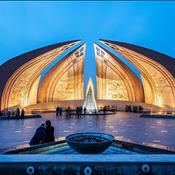 10-Jul-2021Find The Best Tourist Cities In Pakistan For The Summer Holidays
10-Jul-2021Find The Best Tourist Cities In Pakistan For The Summer Holidays -
 19-Feb-2025Arrangement for Sighting the Moon of Ramadan-ul-Mubarak 1446 A.H/2025
19-Feb-2025Arrangement for Sighting the Moon of Ramadan-ul-Mubarak 1446 A.H/2025 -
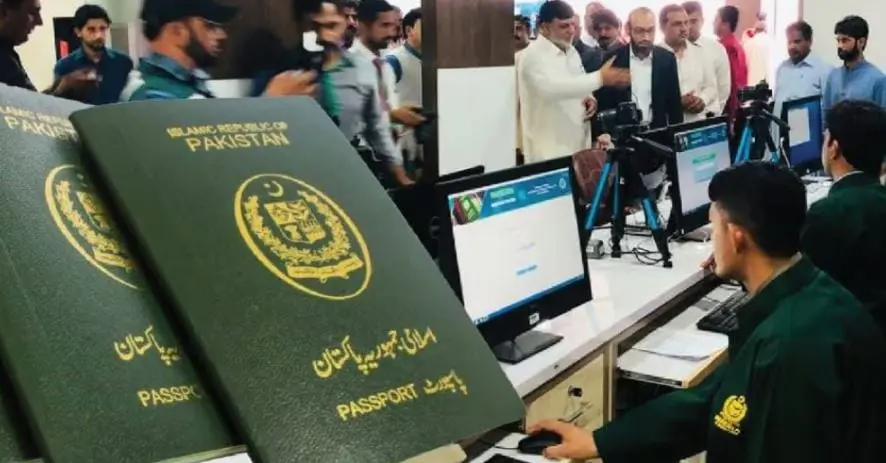 30-Jun-2025Citizenship by Investment Programs for Pakistanis in 2025: A Comprehensive Guide
30-Jun-2025Citizenship by Investment Programs for Pakistanis in 2025: A Comprehensive Guide -
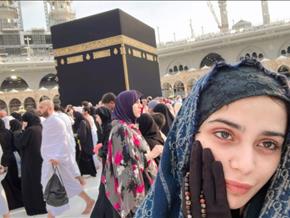 06-Aug-20242 in 1 Package? Aima Baig Performs in Concert and Then Performs Umrah
06-Aug-20242 in 1 Package? Aima Baig Performs in Concert and Then Performs Umrah -
 19-Apr-2025Naran season starts. Find out best tour packages and how to reach Naran on car.
19-Apr-2025Naran season starts. Find out best tour packages and how to reach Naran on car. -
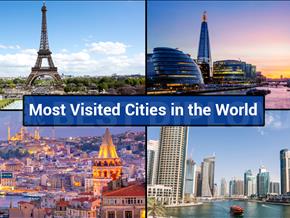 29-Mar-2019The Top 25 Most Travelled Places in the World
29-Mar-2019The Top 25 Most Travelled Places in the World -
 27-Aug-2025Portugal Golden Visa 2025 Guide to Requirements and Application
27-Aug-2025Portugal Golden Visa 2025 Guide to Requirements and Application -
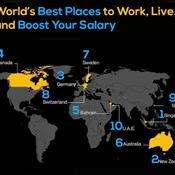 22-Apr-2021Best Countries In The World For Work And Settle
22-Apr-2021Best Countries In The World For Work And Settle -
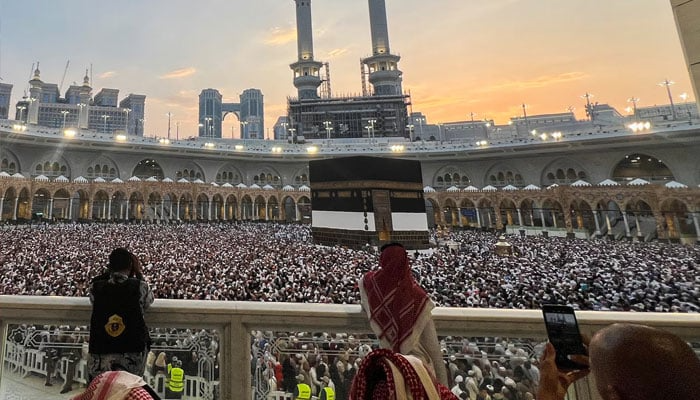 05-Mar-2025New Rules & Regulations for Umrah Pilgrims in 2025
05-Mar-2025New Rules & Regulations for Umrah Pilgrims in 2025 -
 24-Jun-2022Explore Baluchistan Province Coastal Area Hub of Rare Species
24-Jun-2022Explore Baluchistan Province Coastal Area Hub of Rare Species -
 04-Dec-2024PIA Prepares to Resume European Flights: A New Chapter for Pakistan's Aviation
04-Dec-2024PIA Prepares to Resume European Flights: A New Chapter for Pakistan's Aviation
